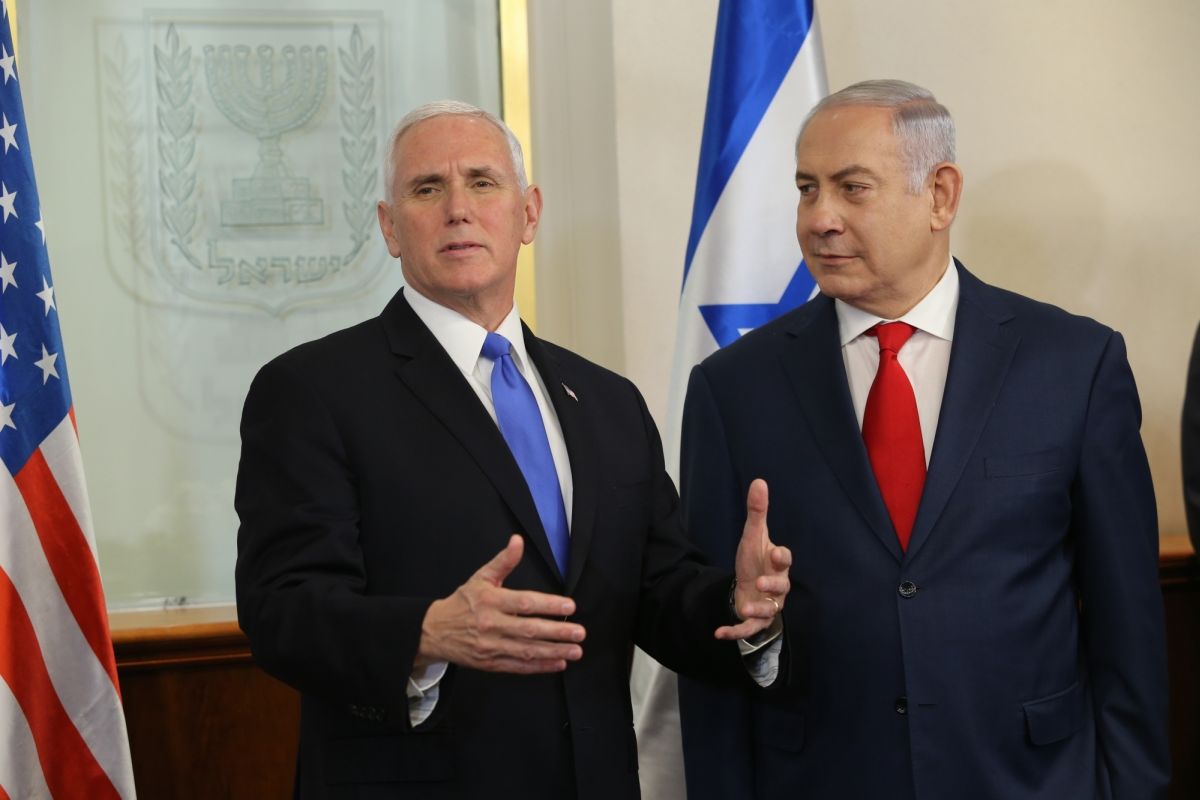US Vice President Mike Pence has announced that the White House will release its Middle East peace plan next week.
Earlier on Thursday, while presenting a joint statement with Israeli Prime Minister Benjamin Netanyahu, Pence said that the US President Donald Trump requested him to extend an invitation to the premier and opposition leader Benny Gantz to arrive in Washington “to discuss regional issues and the possibility of peace in the Holy Land”.
Advertisement
Pence further said that PM Netanyahu and Gantz accepted the president’s invitation.
Netanyahu said he suggested the White House would invite Gantz as well, “because I think it is important that we not lose this historic opportunity with such friends in the White House”.
“We should get an as broad consensus as possible,” said Netanyahu.
The statements were made ahead of a meeting between Pence and Netanyahu at the US embassy in Jerusalem.
If Trump releases his much-touted Middle East peace plan – crafted by his son-in-law and adviser Jared Kushner – before Israel’s next election, that may also be viewed as an effort to help Netanyahu as he vies to hold onto power in Israel. Netanyahu faces charges of fraud and bribery.
The White House did not say whether Trump will unveil the peace plan publicly or only talk with the two Israeli leaders about it behind closed doors.
The economic part of Trump’s peace plan was unveiled during a US-led conference in Bahrain last June, a convention boycotted by the Palestinians.
The last round of peace talks between Israelis and Palestinians broke down in 2014 amid the former’s expansion of the settlements in the West Bank.
Earlier in the month, the US government issued a travel advisory that urged its citizens to stay alert while travelling in Israel and Palestine.
The travel alert came after the January 3 US drone attack that killed Qasem Soleimani, the commander of Iran’s Islamic Revolution Guard Corps (IRGC) Quds Force, that has led to outrage and revenge threats from Tehran.
The strike, which some US lawmakers including Sen. Bernie Sander, a presidential candidate — characterized as an assassination, has brought US forces and Iranian-backed militant groups to the edge of direct conflict even as U.S. strikes have targeted dozens of suspected militants in recent days.











